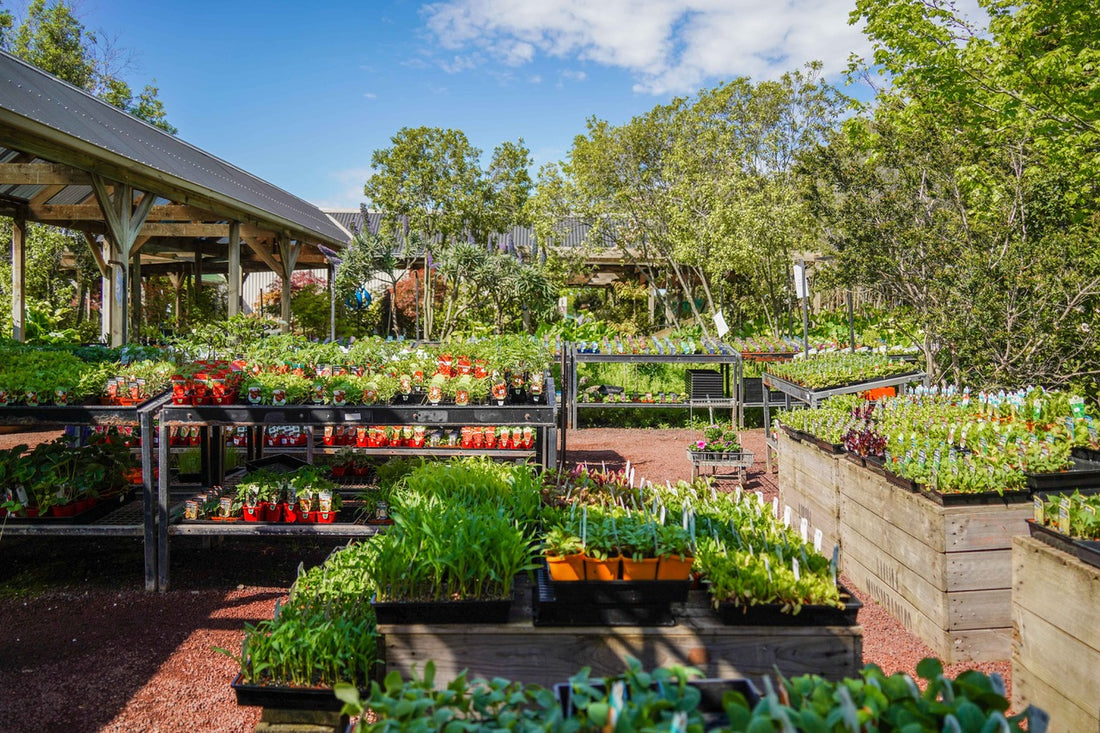In Victoria, summer is the perfect time for all things fruit and veg. Whether your garden bed is already established or if it’s a work in progress, there’s always room for improvement!! Use these tips and tricks to help your vegetable garden flourish in the coming months. From tomatoes and cucumbers to pumpkin and eggplant, growing your own veggies in the warmer months can be so rewarding. However, to ensure an amazing harvest this summer, give your plants an extra boost to encourage further growth using our favourite tips!!

Raising the stakes (and beds):
Struggle to maintain your veggie garden and its soil quality? A raised garden bed might be for you! Through raising your veggie patch above ground, you may be able to extend your growing season even further. Growing your plants in a self-contained area makes it easier to manage water drainage and improve soil quality. You can choose the right soil for the perfect balance of drainage and nutrients, helping your plants thrive! Additionally, these kinds of garden beds are perfect for smaller areas where using the area above ground creates more space.

Best Buds = Better Crops:
Companion planting is another way to enhance plant growth and overall health through utilising all the space in your garden. Planting different vegetables next to each other creates an effective ecosystem that benefits each plant in a different way. Whether your garden needs to boost nutrient uptake, deter pests or enhance growth, companion planting may be the more natural way to achieve all these outcomes. For example, by planting French Marigolds among your tomatoes and veggies, aphids and different pests may be deterred. Alternatively, mint can be planted around cabbage to repel cabbage flies leading to a more successful crop. Creating a biodiverse garden using companion planting creates a more resilient garden and means you can avoid using nasty chemicals!!


How to start underplanting:
Looking to add a splash of colour and variety to your veggie garden? Underplanting might be the perfect solution! Just make sure there's enough light and space for your lower-growing plants to thrive, then find the perfect pairings. By planting a smaller crop beneath a larger, mature one, you’re making the most of your garden space and creating a beautiful, balanced ecosystem. Underplanting pairs beautifully with companion planting, so choose your combos wisely! For example, planting basil under tomatoes not only saves space but also helps keep pests like flies and hornworms away, boosting your tomato and basil yield. By creating this little microclimate, you’ll have a more biodiverse, healthy, and productive garden where plants work together in harmony and every plant has a role to play!

The key to healthy soil:
The soil out in your garden is an incredibly diverse, complex environment. Composed of organic matter, microbes, minerals and air and water pores your soil is unique. Having a healthy soil in your veggie garden is incredibly important to ensure water regulation, pollutant filtering and nutrient cycling. Testing your soil to ensure you have the right nutrients for the types of veggies in your garden is essential for a good harvest once they’re fully developed. Come into the nursery and grab the right type of potting mix for the veggies you want to grow and follow our next step to keep it nutrient rich!!

Mulch and watering:
Once you have all your plants in the right spots, ensuring that you are feeding and watering your veggies at the right time is crucial. By watering your veggies each morning, particularly in the hotter months, your plants and soil will retain water moisture throughout the day. Additionally, to protect your plants year-round, use a mulch such as pea straw, sugarcane or pine bark to create a surface cover that returns organic matter back to the soil once it decomposes, continuing to improve your soil health.

Fertilise your soil:
Finally, through fertilising your vegetable garden, your veggies will grow big and strong and give you a nutritious crop. Finding the right fertiliser to replace lost nutrients ensures your soil will continue to feed your plants even if it lacks nitrogen, phosphorous or potassium. By deciding between a synthetic or organic fertiliser and mixing it through the soil, your veggies roots will retain as many nutrients as possible. Give your garden a little love, and watch your crops thrive with all the nutrients they need to grow strong, healthy, and full of flavour!

Through following the basics when growing your veggies you’ll be sure to create beautiful, nourishing vegetables that you can share with all your family and friends. Whether as a project for yourself or to help get your little ones out in the garden, a veggie garden is perfect!! Use these tips and tricks and come and talk to our amazing nursery staff to perfect your veggie garden today!!

